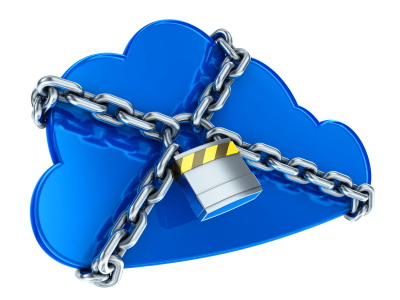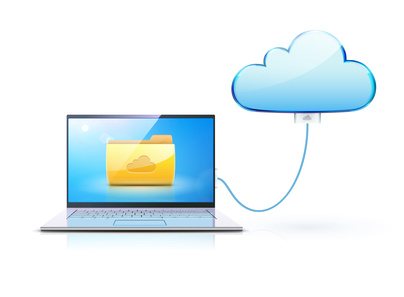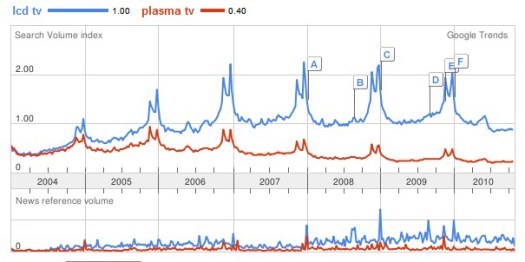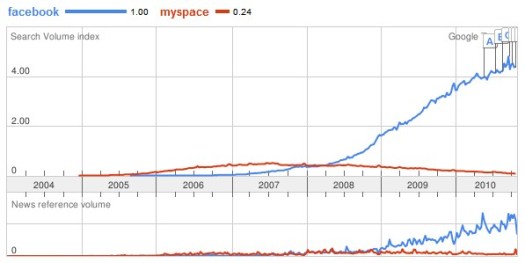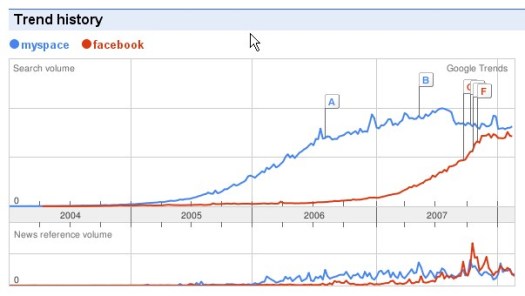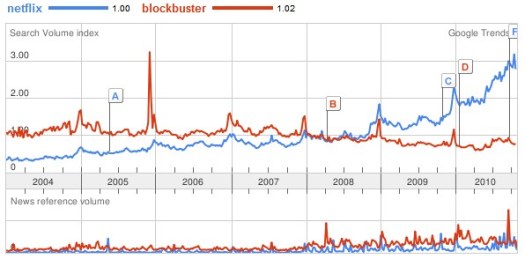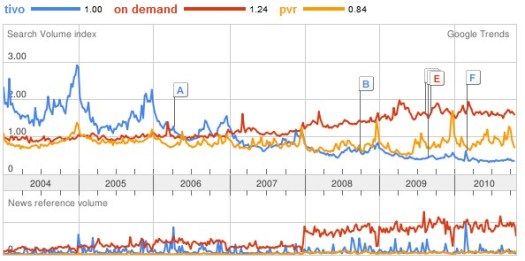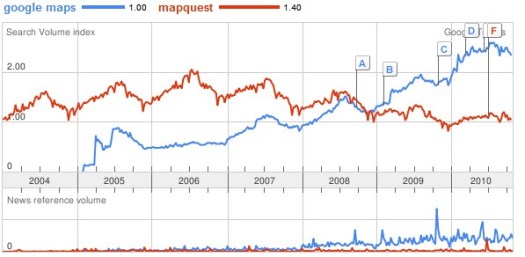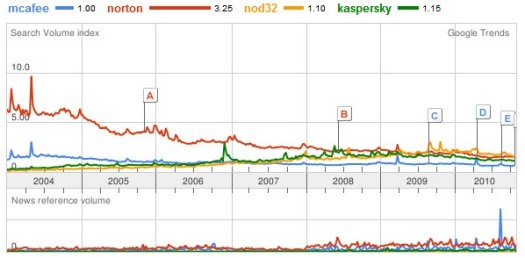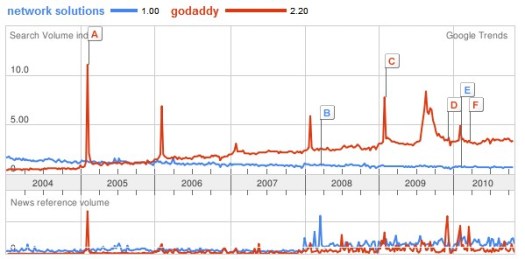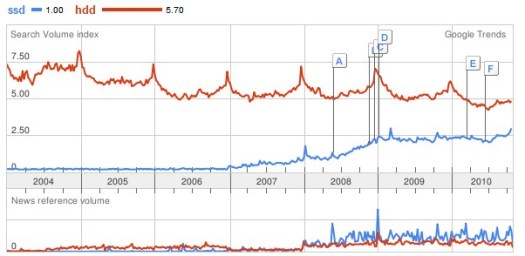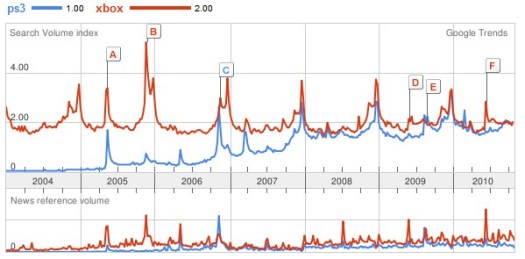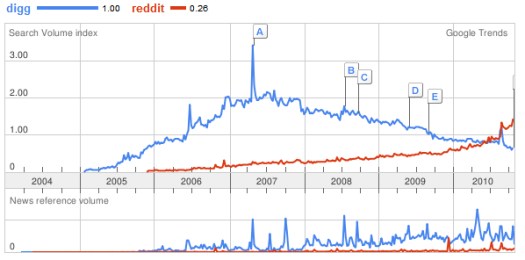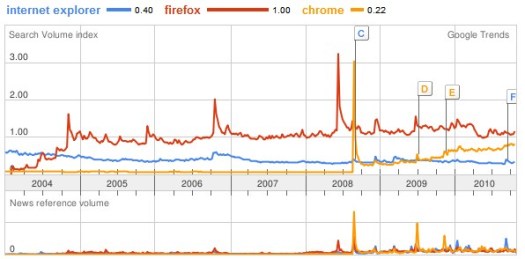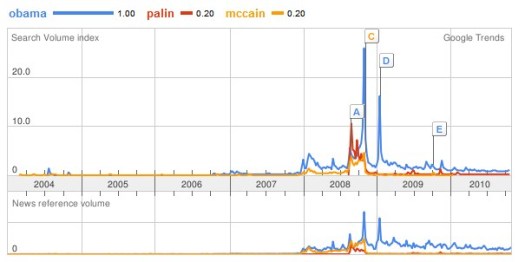Google Reader Alternatives – Not Everything Should Be Hosted
First let me preface this article by saying that although I believe SaaS, cloud services, and hosted services can be very good and wise decisions in some situations, in others they can also be very terrible options.
Not to rehash the past, but I wrote a previous post called What are the Risks of Cloud Services? I explain when it’s good to use hosted services and when it isn’t. They have a time and place, and running core and critical business functionality and data is generally a bad place to use cloud services. I won’t go into the same arguments again, I’ll just recommend you read the article if you haven’t already.
That being said, many people are about to be cut off from Google Reader at the end of the month. There’s only a few days more before their Google Reader service goes away for good. Luckily they gave us a month’s notice, but you can’t always expect this from every company. Additionally we’re very lucky that for most people this is a convenience rather than a critical service. Unlike say the core data for a property management company were you store your accounting, leases, tenants, late rents, etc., Google Reader is mainly just a place where you manage a large the reading of a large number of websites in a convenient and easy way. I personally use it and loved the service. I used it every day. I will definitely miss it.
The problem with a hosted service is that they decide when you can no longer use the service. NOT YOU!! It could be tomorrow, or in the case of Google they can give you a grace period to do what you need to. And in this case, we’re actually even more lucky in that Google offers the ability to backup the data. The big problem however is what do you do with the backed up data? It’s not an industry standard. Generally there is no way to backup the data, and in most cases you have no warning at all.
So what’s happened in the last while is that a bunch of people are trying to create products and services to fill in the void created by Google Readers dismisal. But before continuing, you should be congnicent that if it wasn’t such a big service from a big company, most likely the users of Google Reader would be out of luck with no alternatives. The norm for online services is that you lose everything when the service closes and you normally have no warning. It’s very very common! Just this month alone I personally read (who knows how many I didn’t see) about at least a dozen web services that have closed down on Hacker News which is a place where you can find a lot of interesting news from the Startup community.
One of the more poignants one that recently caught my attention and pretty much inspired this post was called My Startup Has 30 Days to Live. You can read the discussion from Hacker News here. Specifically one comment from patio11 drew my attention, also known as Patrick Mckenzie, where above suggesting they stop taking money unless it’s absolutely necessary to pay employees, he also said:
“It sucks. It will be better, very soon. You don’t have to be scared: this is routine and, while it doesn’t feel like it, you’re actually in very good position, both absolutely and relative to many other people.”
The key comment being “it’s routine”. That this is common. Many online companies close. The problem is that we haven’t experienced it as users enough yet. Much like most people don’t really realize computers and especially harddrives do fail, and quite often. I know more than a few people who have lost all their pictures and videos because they assumed computers just always worked and didn’t need to do any backups. Until digital cameras really became mainstream, most people didn’t really feel the pain when their computers failed because most of the data wasn’t as critical, or shall we say important to them. It’s different now, so people are going through an education process and are learning that you need to backup your data, that computers do fail and it can be very painful.
And with that in mind, I was quite surprised, well ok I wasn’t surprised by it but rather surprised that we’re still repeating the same mistakes when I read the following comment about one of the latest Google Reader replacement options called Sismics Reader which is a software you own and manage on your computer (I have not tried their software so I cannot say if they are good or not):
“This looks pretty promising. Judging from the demo, they have the UI close enough. They need to offer it as a service, though. I like that I have the freedom to run my own server, but I really don’t want to have to bother in practice.”
Basically you want to use a hosted services to replaced the hosted service that was just closed down and for which you’re now trying to scramble to find an alternative solution, because you were lucky enough to be able to backup your data, even if you have no place to restore it to yet.
Cloud and online services can be good in some situations, but we still have to learn that they have a place and time, and that time and place is NOT always!! We internally for LandlordMax use cloud and hosted services for a number of things including email delivery, email newsletter management, version control, and so on. But each of these systems can either be replaced within minutes to a day, or use a standard data structure where the data can also be pushed to another service right away. For example we use Subversion which is one of several industry standard systems for managing programming code. We do regular backups, and if our host goes away, we can move to another service within minutes. In fact we could host it internally on our own computers but we don’t for reasons that are more beneficial for us specifically. The key is that we’re not locked to the success of another company. Losing our programming code overnight would be catastrophic for us, so it’s critical that this data never be locked out. We need to make sure we have regular backups and alternatives should something happen.
With all that in mind I’m personally more interested in a Google Reader replacement that I can own and manage myself. There are just too many startups right now clamoring for Google’s fallout, and I suspect a LOT of them will be gone within the next year or two. And at that point, it’s right back to the very same situation as today. And the next time we may not be able to transfer the data to another solution. I don’t expect these new solutions will support each other’s data formats, assuming you can even export any data at all. At least with a software solution you own and manage you can continue using the software for as long as you need or want. If the company closes, discontinues the software, etc., you can still continue using the software for as long as you want. A small difference with a very big implication!
Online and cloud based solutions can be good, just be careful not to assume they are always good because this is not always the case. And if you haven’t already read my article about the risks and when it’s good and when it’s not good to use a hosted service, then I suggest you do so sooner than later.
And hopefully a good Google Reader alternative will appear soon. From what I’ve seen there hasn’t yet been a good solution to transition to yet. Every comment and suggestion I’ve seen so far about Google Reader alternatives has been about making due with what they have. There’s been no obvious goto solution yet. Right now it’s still really about just good enough until someone releases something worthwhile.
PS: In all this we never even mentioned issues such as what happens if you get locked out of your service. What if for example Google decided one day to lock you out of your Gmail account? What if your credit card failed and you didn’t notice until after they closed your account and deleted all your data? Just a few other things to look out for…
Permalink to this article Discussions (0)
What are the Risks of Cloud Services?
Through my company LandlordMax I hear lots of people asking if we have a cloud offering (in case you’re wondering, we don’t yet). The thing is that most people ONLY look at the benefits, very few look at the potential and catastrophic issues that you’re at risk of. For LandlordMax we use several online (cloud’ish) solutions, and it’s great for many things. The problem is that you also have to be careful because for some things the downside can be catastrophic! Even possibly terminal to your business! It can be much bigger than you realize and I’ll explain why in just a bit.
First, let’s make sure we’re on the same page about what cloud offerings really are. So what exactly is a cloud offering? Most people today have come to define a cloud service as a service that’s hosted online. Although not exactly right, it’s pretty close. And for the purpose of this post we’re going to define cloud services as all online services. In most cases these are just going to be websites that offer services. Again, although not technically correct, it’s close enough for today. And anyways this is what most people understand cloud services to be.
If you’re interested in the exact details, Wikipedia has a nice article about cloud computing. As well you’ll probably want to check out their article about SaaS (Software as a Service), which is actually closer to what people really mean when they say cloud services.
In any case, let’s start with the benefits, so we can understand why people are so interested in these solutions (including myself):
Benefits:
- Affordable: You don’t have to invest in any infrastructure, computers, etc., it’s all taken care of for you and amortized over time.
- Automation and Maintenance: You don’t have to manage any computers, servers, upgrades, etc. It’s all taken care of for you.
- Mobility: You can generally access the service anywhere there is an internet connection.
- Focus on core competencies: Instead of spending time setting up your infrastructure, computers, etc. you now have the time to spend on where your real value is.
- Scalability: Most online solutions will offer a significant amount of growth. You just move up plans. Amazon’s EC2 service recently had an amazing example where a system scaled up to 50,000 CPU cores within 3 hours.
- Easier: If you don’t have to set up anything. You don’t have to figure out how it works. It’s all done for you.
- Vendors are more experienced: In most cases, the service you’re using is the vendors bread and butter, they work in these systems all day, so they know their stuff in and out whereas for you it’s just to get the job done.
- Quicker: You can generally sign up and start using the solution within minutes. If you have to set it up, it can take days, weeks, or more.
- Less commitment: Maybe you only need the service for a month, half a year, etc., which means you can save from having to invest in a ton of infrastructure for a short lifespan.
As you can see, all of these are great benefits. Who wouldn’t want them? Especially for a smaller company, the benefits are incredible.
Of course, like everything else in life, you can’t have everything. Cloud services do come with costs. Not so much in terms of dollar costs, but in terms of very huge potential UNSEEN RISKS. This is especially true if you have to store data!
There are a few other cons, such as you can’t access your data without an internet connection, and so on. But really there’s really just one very big con, and unfortunately it’s generally unseen until it happens. That’s the worse kind of con! What’s worse is that most people don’t really talk about them, mostly because cloud services are still fairly new enough that most people haven’t really had a chance to experience this very big and potentially catastrophic con.
But before I explain it, let me give you an analogy that’s probably closer to home, and that you’re likely to have already encountered.
Most people store their pictures on their personal computer hardrives. Hardrives do fail. Google published a groundbreaking research report and the results were quite troubling. Basically you can expect drives to fail at a pretty predictable rate. And unfortunately it’s not just hardware failures that you have to deal with, all kinds of things can happen such as a virus corrupting your system, power surges, and so on.
In any case, before there were digital cameras, most people really didn’t have that much data, so all their really important data could usually be backed up on a CD or DVD (or if you’re old enough to remember this, floppy disks or tapes). It sucked to lose your saved video game files, or to have to install your applications again, but you usually could. Sure you’d lose some data, but usually it wasn’t that critical. Most important was generally backed up on floppies, CD’s, etc. because it was quick and simple.
Nowadays with everyone having a digital camera, there’s lots and lots and lots and lots and lots of pictures saved on people’s computers. Pictures they really don’t want to lose. The data is now much larger and generally more valuable. There’s so much data these days that in many cases you can no longer just back it up on a CD or DVD. But even at that, because of the quantity of data, most people just simply don’t do any backups at all, they expect their computers will just continue working. And computers usually just work until one fine day where it eventually fails and everything is lost. It’s terrible and catastrophic. Years of pictures lost in an instance!! It’s devastating. Yes there’s other data, but for a lot of people, their pictures are their most important data.
And so as cameras have become more common, we’ve started to experience more the pain of computer failures. And as such, it’s now much more common for the average person to have an external hardrive to backup their data. 5 years ago almost no one did this. Although not everyone still does this, it’s much more common. And its definitely going to be that much more common with time. We’re learning from our experiences. Once you experience it you vow never to let it happen again. It always takes that first time to wake people up, myself included.
I’ve been backing up prolifically since as long as I can remember because I’m one of the lucky ones to have experienced my first computer failures eons ago. And in 2006 I even wrote a post called 4 Simple Steps to Protect Your Data From 99.9999% of all Computer Failures which is still as true today as it was back then. I still mostly adhere to these steps, with the exception that I do even more today than I did back then
So why did I go on such a tangent with digital cameras and data backups, because when you use a cloud service to manage your data you’re basically exposing yourself to exact same risks!! You might not realize it, but with most online services you’re basically running without a net. There’s no backups. If anything happens, it’s the same as a computer failure with your digital pictures. And if the data is critical to your business, it could be catastrophic. What’s worse of all, there’s often no warning at all before it happens.
So let’s get into this con in much detail.
Cons:
For the cloud services you use right now, do you have a backup that you can use if they close down or you decide you want to move elsewhere? In most cases you have no way to extract your data at all, nevermind moving to another service. In those situations that you do, can you actually take that data file and use it anywhere else? Maybe in theory yes, but can you really in practice? If you can’t, then you might as well not have any backups at all. Why fool yourself into feeling more secure when you really aren’t. And this question leads us to some very interesting and provocative questions.
What happens if the company closes or decides to no longer offer their cloud service? All I can really say is good luck with that! Imagine for a moment that you have a contact management system and you have tens of thousands of contacts stored, with all their interactions, etc. The company that hosts the cloud services suddenly closes. What happens the day after the company closes? If it’s a service, the service is shutdown immediately. You’ve just lost all access to the system and your data overnight. Ouch!!
Online services that manage and store data have a lot of additional and very high risks. The scenario I just described is the same as if your hardrive just crashed and you just lost all your pictures and documents without any backups. However in this case, maybe your business relies on the data and system. It sucks to lose your pictures, but you can and will survive. Can your business survive? What is the impact on your business?
If it’s just a backup service of your data files, then it’s not a big deal, you can just re-create the backups with another service. Sure in the meantime you have no backups, but it’s quickly resolved. However if it’s all your customer and vendor contact information, communication histories, contract negotiations, etc., then the impact is going to be huge. What if you were using an online property management software system to manage hundreds or thousands of units and tenants and suddenly you have no access to anything. The impact could be severe enough to cause you to go bankrupt (you may not be able to properly collect your rents on time to pay all your bills, or even know what all your bills are)! That’s a huge risk. A risk that’s so large that it overshadows all the possible benefits!!
Which leads me to my next question, how much warning do you think you’ll get if the company hosting the cloud service closes? I can’t imagine a company that’s managing contacts, emails, projects, etc. publicizing that they’re on the brink of closing. Most likely you’ll have absolutely no warning. One day everything will be fine and the next day the system is down never to come back up. And to be quite honest, I don’t know that there’s much you can do to prepare for this anyways, even if they gave you a warning. How are you going to extract your data? What are you going to do with that data?
Following this, what happens if the service you’re using significantly changes it’s pricing model? It’s not uncommon for an online service to adjust their prices, there are many stories of significant increases in prices. Especially for newer companies, which most cloud based services are. Or better yet, what happens if the company gets acquired? Will the pricing models change? Other than paying what they want to charge you, what option do you have? Sure you can move, but can you really? What is the cost of transitioning?
And what will happen to the could service when it gets brought into the new company as part of an acquisition? Will it stagnate? For example Mint was acquired by Intuit in 2009 and a year later the comments weren’t that great. What if the new company is a competitor? Will they force you to transition to their service or you lose all your data? One of our big competitors has been doing this with the competitors they acquire. They’re basically closing the solutions they acquired and are forcing everyone to move to their cloud based solution. Not everyone is happy about this. It’s yet another very big risk of using a cloud service?
Which leads me to my next big question. Do you trust this company over the lifetime of your own company’s needs? In other words, will they offer the same quality of service in 2-5 years? What about in 10 years? If transitioning is next to impossible, which it is for most online cloud services, then you’re at their mercy. They could never upgrade or improve the service, or worse it could become slow, buggy, etc. with time. What recourse do you have other than completely starting over?
With a solution you install and manage, you don’t ever have to upgrade if you don’t want to. In fact, the company has a very strong motivation to improve their software because they generally only get paid when a new version that has enough value to upgrade is released. If it’s not good enough, people just don’t upgrade. And with time, the value of upgrades becomes more and more significant. In other words, the company’s motivations are probably much more inline with yours when they aren’t cloud based. They need to convince you spend more money on them, that the value is worth it.
Conclusion
Unlike pictures where it would really suck to lose Johnny or Susie’s 1st birthday pictures, the impact to your losing your data could be so significant as to destroy your business. I’ve already given a couple of examples, and it’s pretty easy to come up with additional ones. Basically anywhere you store data that’s critical to your business is at high risk.
Therefore I would now recommend you look at what services you use and determine what the costs would be if they suddenly went down tomorrow. Is that cost worth the benefits? In some cases yes, absolutely, but in other cases no way would you ever even consider it if you had thought about it first.
The thing is that today most online services are still fairly new, and most really haven’t had the chance to close. Although cloud computing isn’t new, it’s really only been in the public’s attention for a short time. And as such very few people have experienced the downside. If I was to guess, I would suspect that most like you haven’t either.
I’ve personally only experienced it once, and it wasn’t with one of our core products, but even then it was pretty painful. I learned my lesson. Never again. And thankfully it wasn’t a service that’s core to my business. And because of that I’ve since been very careful with what online services my company uses.
Anything that can severely cripple us has to be done internally. It has to be installed and managed internally. This doesn’t protect us 100%, but what it does offer us is a buffer. If something happens we have some time if the company closes, collapses, changes, etc. We can at least still continue to use their software until we find an alternative solution, even they don’t exist anymore. We can’t use them indefinitely, but we do have some time to transition to another system. We might not be able to transition the data, but at least we can continue to access the old system if need be. And because we have some time, we can always hire someone to help us in moving data from one system to the other, even if it’s manual data entry. The key is that we at least have options. And most importantly that we’re not without our system overnight.
And with that, I will say that my company probably uses close to a dozen online cloud services. Am I a hypocrite? Am I willing to take those risks? Absolutely not. Each service we use would not cripple us if they closed tomorrow. It wouldn’t be fun if they went down, but it definitely wouldn’t be catastrophic either. There’s only one online service we use which I’m planning to push to an internally manage solution sometime this summer. It also wouldn’t be a catastrophic loss, but it would definitely be more painful than the others. It’s the only solution left with data that we’d need to extract that we wouldn’t be able to. However if we lost the data, it wouldn’t be catastrophic. It wouldn’t be pleasant either, but we could manage without too big a hiccup.
To give you an example of solutions we manage outside, internally we communicate using HipChat. Well at least until last month, before that we were using Campfire. Obviously we were able to transition because we’ve already done it. Losing either of these services overnight wouldn’t be fun, but neither would really slow us down much. They’re very useful and do increase our productivity internally, and losing the chat histories would have some costs because some info would have to be re-communicated, but as I’m sure you can appreciate, the exposure is pretty minimal compared to the costs and risks.
Another example is that we use Aweber to manage our company newsletter. Before I begin, let me just start by saying I chose them because of their reputation and my belief that they aren’t going anywhere anytime soon. In any case, if something happens, yes we’ll lose the latest email subscribers since our last local backup. That’s a cost, but really it’s not that big a deal. Yes we’ll lose our stats over time. They were nice, but we can live without them. The biggest pain would be importing the mailing list with a new service. Most likely all our subscribers would be emailed to confirm and verify they want to be subscribed to the new service managing the newsletter. So as part of this effort, we’ll probably lose a percentage of our subscribers. It’s not pleasant, but by no means is this catastrophic. We can definitely recover.
If however I was a real estate investor, or a property management company managing properties for others, losing all my data could be extremely catastrophic. All of sudden I no longer know which tenants owe me what amount of money (rents, back rents, damages, late fees, etc.). I now have to find all the signed lease agreements and go through that manually just to calculate this month’s rent roll. If I have 300-500 tenants, I might not be able to process all that information in time (I might have 5000 tenants on file but only 500 are currently active). What about all the workorders I have on file, all that information goes away. In some cases a request to fix a leaky sink can just be re-requested by the tenant, but what if a workorder is critical and it gets lost (for example a vacant unit needs a roof repair otherwise it will collapse, a leak that goes unchecked escalates, etc.). If I’m a property management company, I might have obligations on when I need to pay the property owners their rental revenues so they can meet their mortgage obligations, but if all my information is gone, I might not have the time to manually process everything. And when I do find a new system, in this example I now have to enter 500 units worth of data, 500 tenants contact info, 500 leases, etc. How long will that take? I might not be able to survive the 1-3 months it takes me to recover from my online cloud service disappearing on me overnight.
Using an online solution in the above example could be very catastrophic. In this case the risks just aren’t worth the benefits. In this case you’d most likely want to acquire a system which you can manage internally, so that if the software company closes, decides to stop selling the software, gets acquired, changes prices, etc., you can still continue using their software until you find a proper replacement. Otherwise you could come in to the office one day to find yourself in a world of hurt.
Online and cloud services can be very beneficial. They definitely have their merits. We use many such cloud services here within LandlordMax. However you always have to be vigilant in terms of what and how you use them. They really only have one con, bit it’s a whopper of a con! Which is that your data is at their mercy. You generally don’t have backups or anyway of transferring it. So always, and I mean always, make sure that a permanent disruption of the cloud service you’re looking to use isn’t going to destroy you. And if you’re already using it, then you should already start to make preparation plans just in case the worse does happen. Don’t wait until it’s too late because by then it will be too late!
Permalink to this article Discussions (6)
Top 10 Tips to Write Effective Emails
I don’t know about you, but I get a good amount of emails every single day. We’re talking a minimum of about 50-100 emails a day that I absolutely have to read, generally more. This of course doesn’t include the emails that I can skim or just ignore. These are in the absolutely need to read, critical emails.
And as such, I’ve noticed over time that some emails are much much easier to read than other. There’s so much of a difference that some emails I cringe at the thought of having to read them whereas others I’m almost looking forward to reading them. We all make snap decisions on whether an email will be pleasant to read or not with just a single glance, before we even know what it’s about!
Which is why today I’m going to share with you the Top 10 Tips I’ve come up with that can improve any email. These tips will prevent your emails from being ignored, or being put on hold because the receiver is not looking forward to reading them. I’m going to give you some simple tips to improve your emailing.
1. Use sentences
I really hate to have to bring this up, but it must be said, and it must be said first and foremost. When you write an email, use sentences. The first letter of the first word of a new sentence should be uppercase. It’s important because it makes your email that much more readable. I’ve received too many emails where all the letters were lowercase. It might not seem like a big issue but it definitely makes reading any email much harder. Especially if you have longer paragraphs. Then it just becomes brutal!! If you’re guilty of this and you don’t believe me, try having someone send you a full page with no sentences. You’ll be surprised at how hard it is to read.
2. Break it up into paragraphs
You might not be writing a paper, but I can’t stress how much it helps if you break up your email into paragraphs. That is logical groups of sentences that deal with a specific theme or thought. Having a full page of text with no paragraphs is also almost impossible to read. You start to lose context. You lose focus of where you’re at. It makes it really hard. And good luck trying to respond to such an email in parts.
3. Re-read your emails
Please please please re-read your emails. Too many emails are quickly written and not even re-read once. It’s obvious when you get one of these. Nothing makes sense. The sentences don’t even make sense. It’s all over the place. Not all the time, but many times it’s hard to just understand what the other person is trying to say. Please be careful to re-read your emails if at all possible, especially if you’re asking for something. It can make a huge difference.
4. Take a minute to write a good subject title
Many times the decision on whether to read an email now or later, or if at all, is made by just reading the subject title. Now I’m not talking about writing headlines that attract people to your emails like spammy emails do. I’m talking about writing subjects that will make sense to the person receiving the email. For example, if your email is about a company meeting, then make sure to reference that in the subject. Basically make it obvious to the person receiving it what the email is about because it really helps. Not only that, but it also makes looking for emails later on that much easier. What, you mean the email you sent me about our decision to use Malbolge as our programming language, let me see if I can’t find it. There’s nothing here, I’ll have to do a full search, give me a few minutes to find it because there’s a few dozen emails that appeared in the search results. Ugh.
5. Keep it short if possible
Unless it’s a personal correspondence, you generally want to keep your emails as short and sweet as possible. It’s great that you can write amazing poetic and elegant verses, but when it comes to business please keep it as simple and as much to the point as possible.
6. Be careful of the tone
Unfortunately with email, it’s very easy to say something one way and have the other person take it in a completely different way. Tone is something that’s easy to do with a phone call but hard to convey by email. This is why you sometimes see emoticons (more for personal emails), so that you can make sure the person correctly interprets your tone. Whether or not you use emoticons, because in many situations they aren’t appropriate, be very careful what you write so that it cannot be interpreted in a wrong way.
7. Make it respond-able
This goes back a lot to tip #2, “Break it up into paragraphs”. Basically if you want someone to reply, try to break up your email into chunks, chunks that make it easier for the person to reply and respond to. For example avoid writing 10 questions in one paragraph, break each question into it’s own line, or something like that.
8. Avoid background images and pictures in your signature
They may look cute on your computer, but it’s much harder for other people to read. That and not all systems that read email are able to display them correctly. On top of this they sometimes make your email much harder to read. I’ve seen some background images that made reading the text virtually impossible until I copy & pasted it out into another application. If someone has to do this, odds are they won’t read it.
9. Correctly setup your from email address
A lot of people forget to setup their from email address, and this is unfortunate. The reason you want to set this up is to let people know who is sending the email. Sure it’s cool to see the email address, but sometimes it’s even better to have a name. I may not know that myCoolEmailAddress23423@landlordmax.com is your email address and may therefore ignore it, or assume it’s unimportant. Instead let me see your name so I don’t have to make the association between you and some random email address.
10. Avoid attachments
If at all possible, put the text in the email itself. As cool as it is to write a Word document, a PowerPoint presentation, a PDF, and so on, if at all possible please put the content directly in the email. The odds of someone reading your email quickly decrease if they have to open up attachments. It’s one more step that’s annoying, especially if there’s no reason for it. And there’s also the possibility of viruses because how can I trust your attachment is safe for my computer. As well, if I ever have to look up what we said, I can’t do a search through the file attachments. This means that the only way I can find your message is by opening the messages and attachments one by one. That’s brutal!!
Bonus Tip 1: Don’t assume your email will remain private. Yes, all emails are suppose to be confidential, but the unfortunate reality is that this isn’t always the case. Therefore be attentive and careful about what you write because you never know where the email will end up. In most cases it’s ok, but you never know.
Bonus Tip 2: Not all emails are urgent. I can’t stress this enough. I know of a few people that mark almost all of their emails as urgent. This is actually quite annoying. Not only that, but have you ever heard of the story of the boy who cried wolf too many times? That’s what will eventually happen.
Permalink to this article Discussions (5)
Why do Some Companies Just Not get Customer Service?
I can understand that customer service might not be as important if you’re a company working on volumes with extremely small margins, but if you’re a “service” company, such as a restaurant, the experience your customers receive will ultimately affect the amount of business you generate. Such a simple concept, do right by your customers and they will come.
Which is why it baffles me when restaurants get this completely wrong. To show what I’m trying to explain, I’ll share with you the terrible experience I had recently eating lunch at Pizzadelic (a local Pizza restaurant). This includes having someone else’s bill in my pizza crust!
But before I begin, let me just start by saying this wasn’t my first lunch at Pizzadelic, I’ve eaten there at least a dozen times in the last year. Not counting the references I gave (at least until now), the total lifetime revenue of myself as their customer was going to be in the thousands of dollars (at least two to three hundred a year for who knows how long, not counting referrals).
Well I had an experience that really soured that relationship. I will no longer be going to Pizzadelic unless I have no choice. It wasn’t the mistake that happened that one day, it was how I was treated in regards to it.
But I’m getting ahead of myself, let’s go back a little bit. And before I even start, I’d like to point out that I went to the restaurant outside of the lunch hour rush, so it’s that much less excusable.
When I first got there I was seated right pretty quickly. However it took a full 15 minutes for a server to come see me! That’s not to order, that’s just to see if I even wanted a glass of water. During a lunch rush I could see this, but after the rush there’s no reason for that long of a delay when the place is fairly empty. It’s not the end of the world, and if that was all that happened you wouldn’t be reading this now. However as it turns out that just set the mood for what was to come.
Eventually they did see to me and the server took my order to the kitchen. Then I waited, and I waited, and I waited some more. At least 30-45 minutes went by before they brought me my pizza (normally it would 10-15 minutes). Again, remember this is after the lunch rush.
Hungry I started to eat. These pieces of pizza are very large, as big as a full sized serving plate (deli style pizzas), so you generally use a fork and knife in this restaurant to eat your pizza. A few bites in I noticed that I was cutting a piece of paper below my pizza. This caught my attention because in all the times I’d eaten the pizza there I had never seen a piece of paper in the plate. So I just assumed it was paper from the oven that they forgot to remove.
As I lifted my pizza I came to the quick realization that it wasn’t a piece of paper for the whole pizza, but rather a small piece of paper. As I pulled, I quickly saw that it was somewhat embedded into the pizza crust. I pulled on it and then looking at it realized it was a bill (the paper was very oily from the pizza so it was harder to read). That was odd? Maybe it was just my order bill that had fallen. But no, it was someone else’s bill!!!
I quickly called over the server, and they of course were apologetic. The manager then took the pizza to the kitchen and re-ordered me a new one.
And here’s where it went sour. Here’s where they had a chance to really make me into an adoring customer. They had two options. Get me a pizza ASAP or just order another replacement pizza the standard way. Give me some kind of compensation or ignore the whole event.
Due to the fact that I’m writing this article, they obviously picked the later of the two. I ended up waiting at least another 30 minutes before my replacement pizza came. They could have done a rush order, etc., but nothing. Already being upset by the bill that’s not mine in the pizza dough didn’t help. Having to wait a long time to be served initially didn’t help either. Having the first pizza take two to three times as long to cook didn’t help. Nothing was helping me feel good about this particular visit.
Once I had finished the new pizza, it took the server a good 15 minutes to come clear my plate from the table. At this point, there was probably as many people in the restaurant as there were servers, so having to wait 15 minutes after being done eating is a long time.
And then came the bill. Remember at this point I’ve had to wait many times longer than should be necessary (close to 2 hours for a pizza), and the restaurant is not in the middle of a rush. Did they comp the pizza? No. They charged me the full amount for the pizza. Yes. Nothing to compensate for having been given someone else’s bill in my pizza. Nothing at all. Not even a we’re sorry about that. The server just came over and gave me the bill. And if you think it’s just the server, the manager was also aware of the whole issue. Nothing.
If they valued their customers and the total revenues they can bring over their lifetimes, especially for a company in the service industry, they sure didn’t show it. Had they treated me right I would’ve assumed this was a one time event and I was just unlucky. Things happen. But the fact that they made me wait forever for a second pizza, took their time to wait on me (knowing full well I wasn’t a very happy customer), and then didn’t even offer to give a reduction, a voucher, or comp on the meal, well that really shows me how much they value their customers.
Because of this I will avoid going there again. I’ve now also written about it on this blog which means I’ll probably show up on the search results for Pizzadelic. If it’s anything like my Telus adventure from a few years ago, I’ll be near the top of the search results for their website. How many customers, and hence revenues, will it affect? Treat your customers well and you’ll make lots of money, even when you screw up. The folks at 37Signals recently showed the world how to turn a bad event into a great PR. Nobody’s perfect, we all make mistakes. The key is how do you handle these situations?
For example, last week we had someone complain to us that the CD we shipped out to them was defective. We do our best to have a zero defect rate, we even have an automated procedures to test all CD’s before they go out. But unfortunately something happened. Maybe we made a mistake, maybe the CD was broken along the way during the shipping process. Who knows. We don’t question why or what. All we hear is that our customer ordered something and it didn’t work. Who cares where the responsibility lies because in their minds it’s our CD that didn’t work. It doesn’t matter if it was broken after it left our door. It doesn’t matter if the CD manufacturer we use might have made a CD of slightly lower quality. It doesn’t matter who’s fault it is to them. From the customer’s point of view they ordered something from us that doesn’t work so it’s up to us to fix the issue.
Our response in that case, as we’ve always done, is to re-ship the CD. However when this happens we ship it by express mail. You see normally we ship all our CD’s by ground shipping which can take anywhere from 1-4 weeks (generally it only takes 1-2 weeks). We’ve chosen this route for numerous reasons, including the fact that our customers don’t need to wait for the CD to arrive to start using the software, and that it keeps their costs down. In any case, if something goes wrong, we don’t ask why or blame the postal system. We ship another CD right away, and we ship it express. It will be there within a couple days, even if they don’t need it to start using the software. We assume the responsibility and we make right by them.
We’ve also been known to do other things to right any mistakes we’ve accidentally done. And you know what, more often than not we get glowing emails from these customers. In many cases they really respond positively saying how well we treated them and that they will let everyone know about us. We’ve even gotten testimonials this way! Word of mouth really helps to grow your business.
Unfortunately for Pizzadelic, the way they handle errors is going to lead them to lose customers. Not just directly, but as of today they will also be found on Google for negative experiences. It’s not that hard, make right by your customers and your business will prosper. Never forget that, especially if you’re a service business.
Permalink to this article Discussions (1)
Common Wisdom Isn't Always Right
Today’s post is going to be very different than my normal posts, I’ve decided today to write about a random observation I made some time ago. Which leads me to the main topic of this post, and that is to question what we take for granted. Just like in my previous post where I suggest that having a job is NOT necessarily safer than being an entrepreneur, today I’m going to give you another example why it’s important NOT to take conventional wisdom as fact. Especially as an entrepreneur!
Conventional wisdom says that violent video games cause people to become more aggressive and violent. And if you think about it, it does seem to make sense on the surface of things. But is it really true? Sure there are examples of people who played violent games that did become violent, but I’m sure I can find examples of people that are into other very non-violent activities and hobbies that did just as violent things. I will wager that somewhere there is a quiet and shy librarian or butterfly collector that has had some kind of violent outburst.
The question isn’t if there are examples because you can find examples for just about anything, especially with the internet and YouTube these days. I can probably find several examples of people that lost their pinky finger and have made more than a million dollars starting their own business. I’m sure I can find examples of people who purchase DVD players in December that have are balding prematurely. You can almost always find at least one or two examples of anything if you look hard enough. Just because there is an example doesn’t mean it’s related.
The bigger question is if there’s a correlation. Once we have a correlation, we can then investigate if there’s a causation. For example, as the number of pirates have decreased, there has been an increase in global warming over the same period. Therefore is the lack of pirates is the cause of global warming? Since the 1950s, both the atmospheric CO2 level and crime levels have increased sharply therefore CO2 causes crimes. In both of these cases it’s obivous that there is a correlation but it’s also obvious that the correlation doesn’t causation. That is to say that one cased the other.
Back to our question, do video games actually make you more violent?
But before we answer that question, let’s look at sports. Do sports make you more violent? Or more precisely does watching sports make you more violent? Conventional wisdom here would say no, that watching sports shouldn’t make you any more violent. How could watching sports make you more violent? If anything it would make you less violent than playing sports.
Let’s be even more specific, since sports can include a lot of different sports, some more violent than others. Can watching football make you more violent? What about basketball or hockey? What about soccer?
If you answered no, then let me ask you another question. Why was there such a police presence at the World Cup? Why were they needed? Why were they prepared long in advance? Why is that after most major championship games there’s generally a strong police presence? Why are they almost every time? Why are the fans so violent after the events? In other words, why are there riots after many major sporting events?
With that in mind, let me ask you this. Was there a police presence at the E3 Expo (Electronic Arts Expo)? This is after one of the biggest, if not the biggest, gaming event in the world. The one where all the biggest game titles are released. Where people get to try and play the latest games. The one with an attendance of over 45,000 people.
If video games have a tendency to cause people to become violent, shouldn’t there have been at least one major incidence? One riot? Shouldn’t there at least be some police presence? In the 10 plus years of the event, and correct me if I’m wrong, I’ve never heard of any major issues with violent outbreaks. I’ve never heard of the event requiring any kind of police presence beyond what’s standard at events of that size.
Which leads me back to my original observation and question, do video games make people violent? If your answer is still yes, then I cringe at what watching sports events do to people.
So if someone ever tells you that’s how you should run your business because that’s just how it’s always done and everybody does it that way, don’t assume it’s always right.
Permalink to this article Discussions (1)
Entreneurship is Safer Than a Job
Many people will argue that a job is much more reliable and safer than being an entrepreneur, but they’re wrong! The worse part is that they’ve never really taken more than a second to actually look at the differences, they just assume it’s better. The reality is different. Do you remember that old saying “don’t put all your eggs in one basket”? Well we’ll get to that shortly, but in the meantime just remember that a job means you’re putting all your financial revenues in one single basket, your employer.
But before that, let me give you an example of just how unsafe a job really is. Have you ever been laid off? Has your project ever been terminated early? Have you ever worked for a company that’s been downsized? How about a company that’s closed? What about a company that closes down your department? A company where the business model no longer works? A company that closes your location?
And it’s not just at the company level, what about on a personal level. Have you ever worked with a difficult boss? What happens if you make a bigger mistake one day? What happens if you get sick? What if your boss is not a good person? What about co-workers? The list goes on.
With a job it’s generally you have a job or you don’t have a job. It’s on or off. You don’t have a partial job, you have one or you don’t have one.
An entrepreneur however isn’t so black or white, it’s more of shades of gray. In other words it’s rarely one or the other. You generally have some revenues, some customers. The company makes some money. Unless something catastrophic happens, which affects both the employee and entrepreneur the same way, you generally see an incline or decline in revenues over time. It’s not overnight. You don’t come in one morning to see your business completely come to a complete halt without any warning.
In other words, as an entrepreneur you don’t have all your eggs in one basket. You have multiple clients, they’re just called customers, whereas as an employee you have only one customer, your employer. If you lose that one customer, you have nothing. Zilch. Nada. The big goose egg. It’s over. As an entrepreneur a single loss of a customer isn’t nearly as catastrophic as it is for an employee. Not that you want to lose customers, but the difference is that not everything is tied to one and only one customer.
So let me ask you again, which is safer, being an entrepreneur or being an employee?
Permalink to this article Discussions (2)
How Accurate Were My 2009 Google Trend Predictions?
For those of you who aren’t familiar with Google Trends, it is a free service by Google that lets you determine the trend of different keyword searches over time, and ultimately compare them against together. This is extremely powerful in that it can really help you predict the future, in many cases it’s so accurate that it can be scary! So today I’m going to take the time and revisit my predictions from June 8, 2009 (about a year and a half ago) when I wrote Can Google Trends Predict the Winner? In case you’re wondering, the answer is yes it can. It’s that accurate!
So let’s look at each prediction one by one to see what’s happened since:
LCD TV versus Plasma TV (obvious prediction)
In 2009 I predicted that plasma TV’s were on their way out. Clearly this trend is continuing today.
MySpace versus Facebook (scary good prediction)
This is one of my favorite predictions, partially because I predicted this as far back as 2007 when Facebook and MySpace were neck in neck, when there was no clear winner yet. When I initially wrote my ebook How to Generate Traffic For Your Website I used the example with data up to early 2008 (first edit). When I re-edited it in 2009, I kept the same graph (shown below) because it was even less clear who the winner was going to be. By 2009 it was starting to become pretty obvious. Of course today there’s absolutely no doubt.
Netflix versus BlockBuster (scary good prediction)
By mid-2009 you could see a downward trend for BlockBuster and an upward trend for Netflix. Based on that, I predicted that Netflix would win over BlockBuster. I used BlockBuster because it was the biggest movie rental company by a large margin.
It turns out that prediction was all too accurate. In September of this year (2010) BlockBuster filed for Chapter 11 Bankruptcy protection. And Netflix is showing no signs of slowing down, they’re actually showing some pretty solid growth as shown below:
In case you’re wondering, how could you have leveraged this information and made money from it. Well the answer is pretty easy. For one you could have avoided losing (er I mean investing) any money in BlockBuster stocks and bought Netflix stocks instead.
For example, if you invested $1000 in Netflix in June 2009, you would’ve paid about $40/share, acquiring 25 shares. Today those same 25 shares would be worth $168.15 each, giving you a total of $4,203.75. A handsome profit of $3,203.75!! You would have made 400% on your money!
If you had invested that $1000 in BlockBuster, at the going price of about $0.65 a share in June 2009, you would now have a total share value of $107.69. You would have lost of the tidy sum of $892.31! In other words you would’ve almost all of your money!
Of course this is a drastic example, for sure not all predictions are that drastic. But it sure does make me think, especially when almost all of my predictions using Google Trends turned out true!
Tivo versus PVR versus On-Demand (ok prediction)
Although harder to see because the changes aren’t as drastic, my predictions from a year and a half ago appear to have also come true here as well.
Tivo continues to be on the decline. In terms of investments, it doesn’t quite work out. It just happens that Tivo had an upswing in stock price in June 2009, going from $7 or $8 a share for a long time before to a high of about $11.50 for the month of June 2009, then falling to a consistent average of $10.50 for many months. After that it did go as high as $18.49 for a short burst, then back below the $8 range until just recently having jumped up back up to exactly $11.50 today! So had you invested in June 2009, you would have made or loss nothing, you’d be exactly where you started. Today, I would still advice against investing in Tivo stocks, unless you want to short the company that is.
For On-Demand, it appears to have stalled somewhat. It did grow from mid-2009, but in mid-2010 it seems to be stalling. If I were a cable network executive, I’d either be pulling back or pushing hard. Leaving things as they are probably means that On-Demand will slowly fade away. Right now it can go either way, but my suspicion is that we’ve seen the peak and it will start to decline because cable companies are notorious for their slow speed of execution.
For PVR, not much has changed. It still too static to predict. If anything there seems to be a small upwards trend, but it is very small. Nonetheless I’m still very much on the fence for PVR. It’s still too early to predict which way it will go, only that it will still be here for some time.
Google Maps versus Mapquest (good solid prediction)
In mid-2009 Google Maps had just passed Mapquest. It was also pretty apparent that Google Maps was growing whereas Mapquest was slowing down. Well today it’s clear that Google Maps has beat Mapquest. The only real question now is if Google Maps has peaked or if it’s just hitting a temporary peak.
Norton versus McAfee versus Nod32 versus Kaspersky (half accurate prediction)
I predicted that Norton and Mcafee would continue to lose marketshare and Nod32 and Kaspersky would continue to grow. Unfortunately the trend graph is very hard to read because Norton had such a strong lead in the past. However if you take out Norton from the graph, it’s a lot easier to see the differences.
That being said, it’s still evident that Norton and Mcafee are declining (hence the mostly accurate prediction). However what’s unfortunate is that Nod32 and Kaspersky seem to have peaked. I then looked at “antivirus” and it seems to also be on a decline as a whole, which is intriguing. Therefore I don’t know if this is related, but it would be interested to follow-up and see what’s going on. Is it the industry in general that’s on a decline? Is it the economy? Or are there other upcoming antivirus companies replacing them? I don’t know and I just don’t have the time to research it myself, but I would definitely be interested to know.
Network Solutions versus GoDaddy (good and easy prediction)
As predicted, the trend continues. Network Solutions continues to decline and GoDaddy continues to grow. I wish I could compare investments made in both of these companies but they aren’t publicly listed. In any case, I predict Network Solutions will continue to decline with time and GoDaddy climb.
SSD versus HDD (good and on track prediction)
As some of you know, I’m quite biased when it comes to SSD versus HDD. I’ve been an SSD convert since early 2008. I currently have an Intel X25-M Gen2 SSD drive in my laptop. I will never go back to HDD’s. The difference is just staggering! Once you go SSD you can never go back to HDD!
Anyways, based on the Google Trends in mid-2009 I predicted SSD’s would eventually overtake HDD’s and eventually become the standard. Not just because I’ve seen the difference firsthand, but also because of the Google Trends charts. Well it appears that this trend is definitely continuing. I predict it’s only a matter of time before we see SSD’s overtake HDD’s. And once that happens, it will stay that way forever. The only thing holding back SSD’s right now is pricing, there’s still too much of a premium that most non-techies are willing to absorb. But as the prices go down, the trend will only increase in speed.
New Predictions
PS3 versus XBox
Based on the above Google Trends, I believe the PS3 is going to become the dominant gaming console in the next 1-3 years, at least until a new “disruptor” console comes along (generally every 5 or so years). And in case you’re wondering, I tried a few variations of the keywords XBox, Xbox 360, Playstation 3, and so on, and basically kept the main two keywords used for searches on these two consoles.
Digg versus Reddit
Looks like Digg has lost it’s way and is going to just keep on losing. Whereas on the other end of the spectrum you have Reddit which seems to be growing even faster since Digg’s recent issues.
Internet Explorer versus Firefox versus Chrome
We’ve all heard news about IE (Internet Explorer) losing dramatic marketshare to Firefox. But how many of you have heard about the latest web browser from Google called Chrome? It’s first official public release was Dec 2008, less than 2 years ago. Although new, it seems to be growing by leaps and bounds while the other two browsers are either stagnant or losing marketshare.
So how do searches on Google actually transfer to marketshare? Quite well it turns out according to Engadget and Ars Technica. Their data is pretty consistent with what we find on Google Trends. IE is consistently losing marketshare, which is why Microsoft is pushing really hard to get IE9 out. This is their attempt at getting back some of their old glorry from the IE versus Netscape win. Firefox seems to be pretty much stable right now, neither losing or winning any real marketshare. And then there’s Google Chrome. According to StatsCounter, Chrome usage has tripled in the last year! Yes, that’s right, tripled!
So what does this all mean? Well unless there’s a significant improvement in either Firefox or IE, then my prediction is that Google Chrome will become a major player in the browser wars. I wouldn’t be surprised if it takes first or second place sometime in either 2011 or 2012.
Conclusion
Although I’ve just compared a few items, the potential is endless! And from what I’ve seen, the accuracy can be surprisingly good. So good in fact that Google has created Google Flu Trends.
Basically what they’ve learned is that the trends for searches about the flu mimic the actual real volumes of flu activity. The biggest advantage with Google Flu Trends is that it’s possible to get the data quicker than the CDC. Yes, that’s correct! The CDC takes about 1-2 weeks to compile the latest data whereas Google can publish it in real time! The idea is that if there is a major spike in flu searches, Google can warn the CDC 1-2 weeks before they even know about a pandemic!
But what about other diseases? I quickly searched for stomach flues and gastros and the data seems to indicate yes. That being said, I will admit I didn’t search very hard to confirm this, but I do suspect it would be very accurate. Scarily accurate!
My next big leap, which I haven’t taken or tested yet, is can Google Trends be used to predict elections? I highly suspect the answer is a resounding yes. I just took a snapshot of the Google Trends for the bigger candidates of the 2008 US presidential race and it clearly shows Obama leading his opponents in searches. Of course this is in retrospect, so it’s very easy to say after the fact. But what about the next election?
I can only imagine what else is possible. If you have any ideas, and especially if you find interesting trends and comparisons, please let me know. I look forward to seeing what you find!!
(good prediction)
Permalink to this article Discussions (2)
How To Really Know if Your Idea is Good or Bad
You’ve just come up with what you think is an amazing idea. A new business that will change the world. A new business that will make you lots of money! You quickly go out and share your idea with your friends and family and they confirm how good the idea is. Everything looks great! The world is perfect.
Then you set off to build your idea. You spend hours, days, weeks, months, maybe even years building it. Then you release it. Nothing happens. The streaming hordes of customers you expected don’t materialize. You can’t get any sales other than that first sale from you mom or dad, but that’s about it. Why? What happened? Everyone confirmed it was a great idea when you shared it with them…
The unfortunate reality is that almost all the time your friends and family will confirm your idea is good, even when it’s not. Firstly most people don’t want to rain down on your excitement. And secondly most of us have learned that delivering bad news is not fun, especially when it’s really not necessary.
So what I suggest, instead of JUST asking your friends and family if your idea is good, ask them if they would also purchase it.
Again, same as before, most will say they would. That’s good! That’s one step further. But don’t stop there. Many people will say yes but would never actually purchase it.
The next step is to confirm your idea by asking if they will purchase it now!! You’ll be surprised at how quickly things change once you ask them to commit real hard earned dollars (excluding your parents of course). Basically as soon as you ask someone to pay money instead of just giving positive wishes, you get their real views on whether or not you’ll succeed.
If you can’t get anyone to commit money to your idea then it’s very likely not a good idea. Maybe it’s too specific and you don’t have like minded individuals, but if that’s the case should you be pushing so far out of your core competencies in the first place. For example, if you don’t know anyone or anything about the kennel business, then should you really start a kennel business?
Getting back to the topic at hand, the only real and sure fire way to tell if an idea is a good idea or not is to ask people to pay for it. Not just if they would pay for it, but to actually ask them to pay for it. Your results will tell you just how good your idea really is!
Permalink to this article Discussions (4)
A Quick and Simple Way to Improve Your Productivity in Under One Second!
The quick and short answer, disconnect your internet cable from your computer for at least a day. You will be shocked at just how wired and distracting the internet can be!
Sometime last week our internet connection was lost due to a cut wire in the ground. Needless to say, it took a few days to get everything back and running. But what I learned over that time is how much more productive I was without the internet!
I’ve always believed myself as very productive and efficient in what I do, wasting very little time to unwarranted distractions. What I never really realized before is just how many interruptions the internet has to offer. Not necessarily in terms of me wasting time surfing, but the notifications, popups, and all other things that try and grab my attention.
First there’s email. I generally only check every few hours, but now I had no reason to check at all. I had no emails to respond to. Nothing. That sure freed up a lot of time. Now I wouldn’t offer this as advice to follow on a daily basis, but if you need a specially productive day, few days, etc., then just disconnecting completely from email can have a large impact on your productivity. And it’s not just the time lost task switching, it’s also the time it takes to read and respond to your emails.
After email another common problem is web browsing. Basically without an internet connection you can’t take a quick five minute surf break that accidentally ends up being a lot longer. I know when I get pretty tired I just fire up my web browser and check Hacker News, my Google Reader feeds, and so on. It does refresh me a bit, but not nearly as much as stepping away from the computer for a few minutes. Plus you never accidentally lose more than a few minutes if you don’t surf.
And it’s not emails and web surfing, if you don’t have an internet connection you can’t have a chat client open. You can’t have a twitter client open. You can’t take a quick peak at the weather, the news, etc. Basically you’re forced to focus on your work and nothing else. If you’re tired you get up and take a break, otherwise you’re focused on accomplishing your work.
Of course this doesn’t mean you should just be heads down working, everyone needs to come up for a breather once in a while. Take some 5-15 minute breaks when you’re tired. Do stop for lunch. Do get up when you need a break. The key is that you’re limited in what you can and can’t do, forcing you to better focus on your work at hand. Try it for a day, you might be surprised at how productive that day is. I definitely wouldn’t do it every day, but once in a while it’s a really good thing. Especially with looming deadlines!
Permalink to this article Discussions (2)
Top 10 Reasons to Take a Break

As many of you know, I took the summer off from writing on this blog. Actually it was a bit more than the summer, but close enough. Anyways, the reason I took the break is that I needed time to recharge myself. And this of course led me to this post.
Nobody can work forever at a grueling pace, it’s just not possible. Everybody needs to take a break or holiday here and there, some more than others. And today we’re going to cover the top 10 reasons why you and everyone else needs to take breaks from time to time.
1. Your body needs to relax
As simple as it may sound, everybody needs to slow down once in a while. As much as some of us want to believe we can work through anything, we are human and our bodies and minds do need to rest. You can only keep going on fumes for so long. It’s even harder if you quit caffeine!
The other thing to remember is that it takes a bit of time to unwind. Weekends aren’t really enough to catch your breath. Even a one week holiday barely gives you enough time to unwind. Most people find that they finally really start to relax after a few to several days of rest, which means by the end of a week you’re finally starting to truly relax. It’s generally not until the second week of holidays that you really relax and benefit from your holidays. Unfortunately for a lot of us, it’s very difficult to take more than a week at a time of holidays.
And just taking a day off here and there is definitely not enough, sometimes you truly need to take some time to slow down your pace. It’s amazing the difference it can make. Don’t fool yourself into thinking that one day off is enough to fully recharge, it’s not. It’s a good start, but that’s all it really is. I view it as more of someone drowning and being able to get a grasp of air. It’s not enough to save you, but it sure does feel great!
2. Get new perspectives
If you never take a step back, you’re always going to be looking at it from the same angle. Taking a break or a holiday gives you the opportunity to take a step back and look at what your doing from a different perspective.
It’s amazing what a little difference in perspective can make. The theory of relativity is really just looking at the world from a different viewpoint. Instead of everything being absolute, Einstein basically realized that everything is relative. In other words we move relative to others, not from an absolute point in space. A simple little difference in perspective lead to a massive improvement in physics. That simple change in perspective completely changed how we view the world and lead to incredible discoveries.
While you probably won’t make the same level of groundbreaking discoveries as Einstein did, it may be enough to give you a significant boost in whatever it is you’re doing. I know being an entrepreneur sometimes I have to look at how I run my business from the outside, otherwise I would just keep doing more and more of the same. Looking from the outside allows me the opportunity to grow when and how I least expect.
3. Appreciate what you have
Like anything, if you do it too much, you start to lose your appreciation for it. For example, imagine if everyday someone did your laundry, cooked all your meals, and so on. After a while you would start to lose your appreciation for everything that’s done for you, it would almost become an expectation. Many hilarious Hollywood movies are based on this single idea.
It’s not until you stop getting the benefits that you really appreciate what you had and lost. For me blogging had become somewhat of a chore and I was no longer appreciating the benefits. And after writing for many years on a regular basis, I kinda got use to it. Once I stopped, about a few weeks into it, I started to want to write again. And the more I wanted it, the more I appreciated that I had the opportunity. And so instead of blogging being a chore as it had eventually become, it’s now something I really look forward to!
4. Improve the quality of your work
Generally if you do something a lot, you start to get lazy with it. A good example is a business manager or entrepreneur that’s had a nice growth and success history. After a few years of getting lots of good results, they may start to slack off a bit on their work because everything is going well. They have the midas touch. That or they’re getting so busy they start to take shortcuts. And unfortunately they may be able to get away with it for some time, riding on their previous successes. The bad news is that eventually it will catch up, and that’s when bad things happen. We’ve all heard stories of people who had it but then road the wave until they crashed.
For whatever reason, I find that when I take a good break, I have a tendency to ramp back up my quality of work. When you come back, you want everything to be done as best as you can. Things that you’d let slide you now address. Of course we always have to be careful about doing busy work just to be busy (like making sure your email inbox is completely clean). It’s just that in many cases you feel refreshed enough to address some of those bigger issues head on rather than deferring them where before you would defer them as much as you can. You’re up to dealing with the hard issues.
5. Disconnect to relearn how to focus
It’s amazing how good it can be to disconnect. Turn off your cell phone. Step away from your emails. Instead of always being on, multitasking like a mad person, it’s great to be able to relearn to focus.
We’re so used to constant distractions in our day and age that we forget how intrusive they can really be. After you’re disconnected for a while, you start to realize how many of those distractions are really just disruptions. You don’t need to receive all your emails right away. You don’t need to address every issue right now. You don’t need to respond to every email this minute. The world doesn’t come to a grinding halt! It’s good to remember that once in a while.
6. Discover and learn new things
How often can we just take the time to learn new things which will in turn make us that much more productive? To be quite frank, most people just keep doing things the same way because of two reasons.
The first is because they’ve always done it that way and they always will. It’s easy and they’re comfortable with the way they are doing things.
The second reason is that they just don’t have the time to learn anything new. That, or in my opinion, they don’t take the time. That is to say they don’t really understand the value of learning.
For example in software development I believe it’s crucial that you investigate your possible solutions before jumping on what you know. Sometimes the difference can be an order of magnitude increase in productivity. Not always, but often the difference in productivity is staggering. This of course doesn’t mean research everything to death, but do take the time to look at alternative options. You might be surprised more often than you think.
This is also partially where you can get the sunk cost effect. Basically the sunk cost effect is where you keep going the same path because that’s what you’ve always done and have invested large amounts of effort and/or money to get it working. In technology, this may be where you create a framework and stick to it regardless of where the programming world is going, or even how badly it’s working out. At some point alternatives and much better solutions come around, but forcing your people to stay to a specific solution because it’s worked in the past and because you have a large system built on it isn’t always the best solution.
As a quick tip, this is why I strongly believe all companies have limited lifespans. Eventually companies get stuck in some way or other due to the sunk cost effect, and they either collapse under their own weight or another new company eclipses them by leveraging a better and more productive way of doing things. As the cliche goes, out with the old in with the new.
7. Create a strategy for the future
When we’re in the thick of it we rarely take the time to create strategies for what we’re doing. We’re mostly just acting and reacting. Rarely do we plan and strategize. It’s generally only when we take a break that we can really do this.
My favorite example for this is video gaming. Before you start a video game, especially multiplayer games, you prepare your strategy. Then you try to execute it. Rarely do you adjust your strategy in the middle of a game. You’ll sometimes make tweaks to it between games, but often they won’t be very significant. It’s not really until the time between when you end your gaming session and you restart your next gaming session that you really take the time to plan what you’re going to do. That’s when you think about what you’ve done, and what you can do to improve your gameplay.
The same is true for almost everything in life. When you’re in the thick of it you’re too busy dealing with the situation. It’s generally only after the fires have been squelched that you figure out what happened, and look at how you can prevent it for the future.
8. Spend more time with family and friends
As though it wasn’t obvious enough, we’re probably all guilty of working too much. As much as I try to balance work and play, I’m sure I work too much. So taking a break is a good time to improve that balance.
And if you think you aren’t working too much, let me ask you this: On your death bed, will you ever tell yourself you should’ve worked more? Never have I heard of an instance of someone regretting not working enough. All you hear are stories of people regretting they worked too much and didn’t spend enough time with their families. Ask yourself right now, if you only had one week left to live, what would you do? I doubt your answer would be to work 24/7 for that week. Most likely you would completely skip working. That says it all right there!
9. Catch up on much needed sleep
A really weird thing I found is that when I take a holiday, I always get a lot more sleep. Suddenly instead of sleeping 4-6 hours a day, I start sleeping 8-10 hours a day, sometimes more. Why is that? I would assume because my body naturally needs more sleep than I allow it to take. I make no mistake about it, I am in no way hiding the fact that I’m fooling myself into thinking I can do this and get away with it. No one can. Eventually something has to give.
10. Improve your health
And last but not least, it’s a good chance to improve your health. Go outside and get some sun. Exercise. Ride a bike. Take a walk. Swim. Go for a hike. Whatever activity you prefer, it’s a good time to do it. We’re almost all guilty of not exercising enough. And although exercising during a holiday is not enough, it’s better than nothing. Plus, if you’re lucky you’ll continue doing it for a long time after you come back from your holiday.
Permalink to this article Discussions (3)
| NEXT PAGE » |

